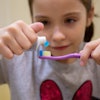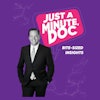
MIAMI - Academics around the world are running into big challenges as they try to get practicing dentists to do research, leaders of the effort said Wednesday at the International Association for Dental Research (IADR) meeting.
In the U.S., the National Institute of Dental and Craniofacial Research (NIDCR) launched three practice-based research networks (PBRN) with $75 million in 2005. Similar efforts are under way in Europe and some Asian and Pacific countries, and they are getting results. "No bigger impact is being made on dentistry than through the PBRNs," said Rick Curro, D.M.D., Ph.D., who directs one such network, Practitioners Engaged in Applied Research and Learning (PEARL) through New York University.
By carrying out their work in ordinary dental offices, researchers get results that apply to the real world rather than just laboratories. And they see what questions really need to be answered. "Partnerships add a sense of novelty and focus," Dr. Curro said.
And when practicing dentists get more interested in research, they are more likely to incorporate the findings into their practice. Wendell Evans, B.D.S., M.D.S., DDSc, an associate professor at the University of Sydney, gave the example of a study on caries management in which dentists in rural, suburban, and urban Australia collaborated. The results showed that they were able to reduce the incidence of decayed, missing, and filled surfaces by about a third over two years.
But most of the half-day IADR session was devoted to the challenges of the proposition. Elizabeth Davenport, B.D.S., Ph.D., M.Sc., of Barts and The London School of Medicine and Dentistry pointed out that researchers can run afoul of regulations governing ethics, peer review, data standardization, health and safety, funding probity, and intellectual property.
She gave the example of a study that British regulators shut down for three months because the investigators decided -- after it was already under way -- to interview patients in addition to collecting quantitative data about the health outcomes. Since the study protocol had been changed, the regulators felt it had to be reviewed. But some of the patients left the study during that time, compromising its statistical power.
A dentist in the audience who is part of a Florida PBRN stood up to say that many practitioners have trouble with the kind of meticulous record keeping required for accurate research. "When a patient is gagging on an impression, it's the last thing on my list of priorities."
Some networks, including those funded by the NIDCR, reimburse dentists for the time they spend on record keeping; one project paid out about $2,000 per dentist. But that's still not enough for many young dentists who are coping with a huge debt and are thus more focused on earning money, acknowledged Dr. Curro.
Researching in dental offices can also produce biased results, said Catherine Demko, Ph.D., co-director of the Community Research for Oral Wellness Network (CROWN) through Case Western Reserve University. One reason is that the dentists willing to participate may not be representative of the average dentist. "We have a self-selected and somewhat motivated group of practitioners," she said.
Another reason is that patients from a particular dentist's office are more like each other than they are like patients in another dentist's office. This "clustering" effect deflates standard errors and inflates p-values if not properly controlled.
A third issue is that good research depends on qualitative data of the kind you get by bringing several patients together in a focus group. But it's hard to get patients from different practices to come together in a group and be interviewed, Demko said.
Joseph Matthews, D.D.S., a practitioner in Los Alamos, NM, who participates in an initiative to bring evidence-based dentistry into practice, said he has encountered a lot of resistance. "We have these two worlds," he said, "the research world and the practice world. Never the twain shall meet -- and if they do, be prepared for a battle."
Copyright © 2009 DrBicuspid.com















